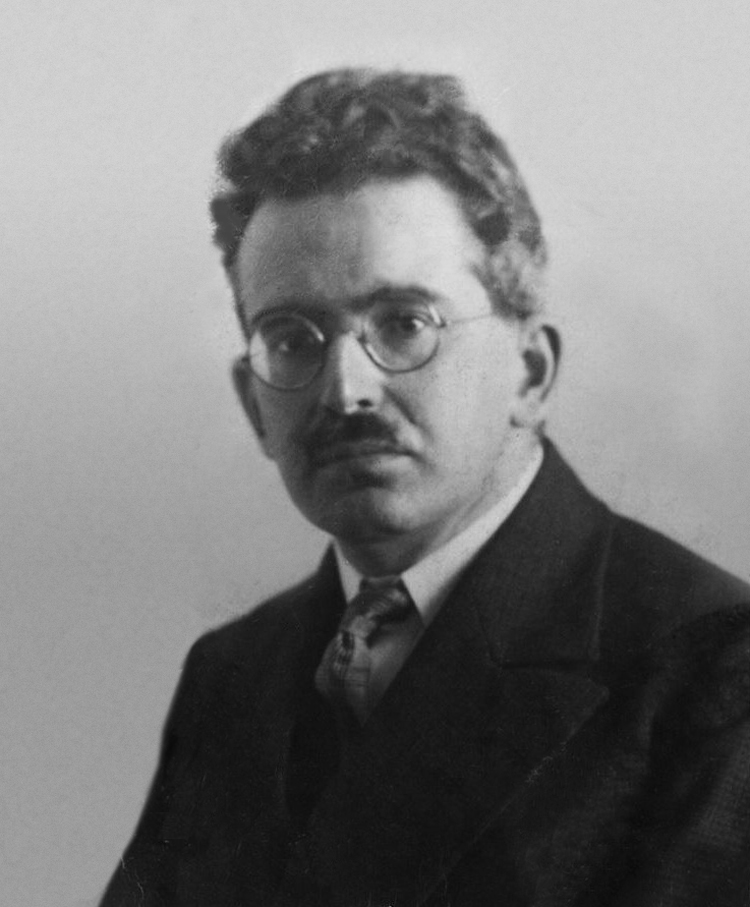Das Kunstwerk im Zeitalter seiner technischen Reproduzierbarkeit, III, S. 479 f.
Das Kunstwerk im Zeitalter seiner technischen Reproduzierbarkeit (1935)
Werk

Einbahnstraße
Walter Benjamin
Das Kunstwerk im Zeitalter seiner technischen Reproduzierbarkeit
Walter BenjaminKapitalismus als Religion
Walter Benjamin
Über den Begriff der Geschichte
Walter BenjaminWalter Benjamin Berühmte Zitate
„Es ist niemals ein Dokument der Kultur, ohne zugleich ein solches der Barbarei zu sein.“
Theses on the Philosophy of History (1940)
„Die Maske des Erwachsenen heißt 'Erfahrung'.“
Gesammelte Schriften, Band 2, Teil 1. Suhrkamp Frankfurt/M. 1977. S. 54
Andere Werke
„Nur um der Hoffnungslosen willen ist uns die Hoffnung gegeben.“
Goethes Wahlverwandtschaften, Gesammelte Schriften I.1, Frankfurt am Main 1991, S. 201
Andere Werke
Gesammelte Werke: Essays + Aufsätze + Satiren + Kritiken + Autobiografische Schriften (Über 600 Titel in einem Buch - Vollständige Ausgaben): Goethes Wahlverwandtschaften ... der Geschichte und mehr
Gesammelte Werke Walter Benjamins
Zitate über Alter von Walter Benjamin
Das Kunstwerk im Zeitalter seiner technischen Reproduzierbarkeit, Nachwort, S. 506
Das Kunstwerk im Zeitalter seiner technischen Reproduzierbarkeit (1935)
Das Kunstwerk im Zeitalter seiner technischen Reproduzierbarkeit, III, S. 506
Das Kunstwerk im Zeitalter seiner technischen Reproduzierbarkeit (1935)
Das Kunstwerk im Zeitalter seiner technischen Reproduzierbarkeit, IV, S. 480
Das Kunstwerk im Zeitalter seiner technischen Reproduzierbarkeit (1935)
Das Kunstwerk im Zeitalter seiner technischen Reproduzierbarkeit, X, S. 492
Das Kunstwerk im Zeitalter seiner technischen Reproduzierbarkeit (1935)
Das Kunstwerk im Zeitalter seiner technischen Reproduzierbarkeit, XIV, S. 500
Das Kunstwerk im Zeitalter seiner technischen Reproduzierbarkeit (1935)
Zitate über Leben von Walter Benjamin
The Life of Students (1915)
The Task of the Translator (1920)
Einbahnstraße, HANDSCHUHE, S. 14
Einbahnstraße (1928)
Walter Benjamin Zitate und Sprüche
„Bücher und Dirnen kann man ins Bett nehmen.“
Einbahnstraße, NR. 13, I. S. 36
Einbahnstraße (1928)
"Linke Melancholie" in: "Die Gesellschaft", Februar 1931; nach "Gesammelte Schriften 3", Frankfurt am Main 1972, S. 279 ff.
Andere Werke
„Jede Mitteilung geistiger Inhalte ist Sprache.“
Über Sprache überhaupt und über die Sprache des Menschen, in: Sprache und Geschichte. Philosohische Essays, Stuttgart 2000, S. 30
Andere Werke
„Schwerer ist es, das Gedächtnis der Namenlosen zu ehren als das der Berühmten.“
Gesammelte Schriften, Band 1, Teil 3. Suhrkamp Frankfurt/M. 1974. S. 1241
Andere Werke
Gesammelte Werke: Essays + Aufsätze + Satiren + Kritiken + Autobiografische Schriften (Über 600 Titel in einem Buch - Vollständige Ausgaben): Goethes Wahlverwandtschaften ... der Geschichte und mehr
Gesammelte Werke: Essays + Aufsätze + Satiren + Kritiken + Autobiografische Schriften (Über 600 Titel in einem Buch - Vollständige Ausgaben): Goethes Wahlverwandtschaften ... der Geschichte und mehr
Gesammelte Werke: Essays + Aufsätze + Satiren + Kritiken + Autobiografische Schriften (Über 600 Titel in einem Buch - Vollständige Ausgaben): Goethes Wahlverwandtschaften ... der Geschichte und mehr
„Man geht immer die gleichen Wege des Denkens wie vorher. Nur scheinen sie mit Rosen bestreut.“
Tillman Rexroth (Hg.): Walter Benjamin – Über Haschisch. Frankfurt am Main 1972, S. 68.
Main features of my first impression of hashish (1927)
The Task of the Translator (1920)
Über Sprache überhaupt und über die Sprache des Menschen
Capitalism as Religion (1921)
The Concept of Criticism in German Romanticism (1919)
The Task of the Translator (1920)
„In einer Liebe suchen die meisten ewige Heimat. Andere, sehr wenige aber das ewige Reisen.“
Einbahnstraße, ANTIQUITÄTEN, ALTE LANDKARTE, S. 45
Einbahnstraße (1928)
Einbahnstraße, CHINAWAREN, S. 12
Einbahnstraße (1928)
„Gaben müssen den Beschenkten so tief betreffen, daß er erschrickt.“
Einbahnstrasse, GALANTERIEWAREN, S. 40
Einbahnstraße (1928)
Einbahnstraße, ANKLEBEN VERBOTEN!, DIE TECHNIK DES KRITIKERS IN DREIZEHN THESEN, VII. S. 35
Einbahnstraße (1928)
„Es gibt nichts Ärmeres als eine Wahrheit, ausgedrückt wie sie gedacht ward.“
Einbahnstraße, TECHNISCHE NOTHILFE, S. 70
Einbahnstraße (1928)
„Einsam zu speisen macht leicht hart und roh.“
Einbahnstraße, „AUGIAS“ AUTOMATISCHES RESTAURANT, S. 65
Einbahnstraße (1928)
Einbahnstraße, CHINAWAREN, S. 31
Einbahnstraße (1928)
„Die Tötung des Verbrechers kann sittlich sein – niemals ihre Legitimierung.“
Einbahnstraße, KURZWAREN, S. 71
Einbahnstraße (1928)
Einbahnstraße, KURZWAREN, S. 71
Einbahnstraße (1928)
„Das Werk ist die Totenmaske der Konzeption.“
Einbahnstraße, ANKLEBEN VERBOTEN!, DIE TECHNIK DES SCHRIFTSTELLERS IN DREIZEHN THESEN, XIII. S. 33
Einbahnstraße (1928)
Einbahnstraße, LEHRMITTEL, S. 27
Einbahnstraße (1928)
Einbahnstraße, ANKLEBEN VERBOTEN!, DIE TECHNIK DES KRITIKERS IN DREIZEHN THESEN, X. S. 35
Einbahnstraße (1928)
Walter Benjamin: Zitate auf Englisch
Quelle: Illuminations: Essays and Reflections
“This storm is what we call progress.”
Quelle: Theses on the Philosophy of History (1940), IX
Kontext: A Klee painting named ‘Angelus Novus’ shows an angel looking as though he is about to move away from something he is fixedly contemplating. His eyes are staring, his mouth is open, his wings are spread. This is how one pictures the angel of history. His face is turned toward the past. Where we perceive a chain of events, he sees one single catastrophe which keeps piling wreckage upon wreckage and hurls it in front of his feet. The angel would like to stay, awaken the dead, and make whole what has been smashed. But a storm is blowing in from Paradise; it has got caught in his wings with such violence that the angel can no longer close them. This storm irresistibly propels him into the future to which his back is turned, while the pile of debris before him grows skyward. This storm is what we call progress.
“Nothing that has ever happened should be regarded as lost for history.”
Quelle: Theses on the Philosophy of History (1940), III
Kontext: Nothing that has ever happened should be regarded as lost for history. To be sure, only a redeemed mankind receives the fullness of its past — which is to say, only a redeemed mankind has its past become citable in all its moments. Each moment it has lived becomes a citation à l'ordre du jour — and that day is Judgement Day.
Quelle: Theses on the Philosophy of History (1940), IX
“How many cities have revealed themselves to me in the marches I undertook in the pursuit of books!”
Quelle: Illuminations: Essays and Reflections
“There is a secret agreement between past generations and the present one.”
Quelle: Theses on the Philosophy of History (1940), II
Kontext: There is a secret agreement between past generations and the present one. Our coming was expected on earth. Like every generation that preceded us, we have been endowed with a weak Messianic power, a power to which the past has a claim. That claim cannot be settled cheaply.
“That claim cannot be settled cheaply.”
Quelle: Theses on the Philosophy of History (1940), II
Kontext: There is a secret agreement between past generations and the present one. Our coming was expected on earth. Like every generation that preceded us, we have been endowed with a weak Messianic power, a power to which the past has a claim. That claim cannot be settled cheaply.
Unpacking my Library: A Talk About Book Collecting (1931)
Kontext: Of all the ways of acquiring books, writing them oneself is regarded as the most praiseworthy method. … Writers are really people who write books not because they are poor, but because they are dissatisfied with the books which they could buy but do not like.
Variant translation:
To articulate what is past does not mean to recognize “how it really was.” It means to take control of a memory, as it flashes in a moment of danger. For historical materialism it is a question of holding fast to a picture of the past, just as if it had unexpectedly thrust itself, in a moment of danger, on the historical subject. The danger threatens the stock of tradition as much as its recipients. For both it is one and the same: handing itself over as the tool of the ruling classes. In every epoch, the attempt must be made to deliver tradition anew from the conformism which is on the point of overwhelming it. For the Messiah arrives not merely as the Redeemer; he also arrives as the vanquisher of the Anti-christ. The only writer of history with the gift of setting alight the sparks of hope in the past, is the one who is convinced of this: that not even the dead will be safe from the enemy, if he is victorious. And this enemy has not ceased to be victorious.
As translated by Dennis Redmond (2001)
Theses on the Philosophy of History (1940)
Kontext: To articulate the past historically does not mean to recognize it ‘the way it really was’ (Ranke). It means to seize hold of a memory as it flashes up at a moment of danger. Historical materialism wishes to retain that image of the past which unexpectedly appears to man singled out by history at a moment of danger. The danger affects both the content of the tradition and its receivers. The same threat hangs over both: that of becoming a tool of the ruling classes. In every era the attempt must be made anew to wrest tradition away from a conformism that is about to overpower it. The Messiah comes not only as the redeemer, he comes as the subduer of Antichrist. Only that historian will have the gift of fanning the spark of hope in the past who is firmly convinced that even the dead will not be safe from the enemy if he wins. And this enemy has not ceased to be victorious.
“You could tell a lot about a man by the books he keeps - his tastes, his interest, his habits.”
Quelle: Illuminations: Essays and Reflections
“Ideas are to objects as constellations are to stars [translated from Trauerspiel, 1928].”
Quelle: The Origin of German Tragic Drama
“No poem is intended for the reader, no picture for the beholder, no symphony for the listener.”
Quelle: Illuminations: Essays and Reflections
“There is no document of civilization that is not also a document of barbarism.”
Variante: There is no document of civilization which is not at the same time a document of barbarism.
Quelle: Theses on the Philosophy of History (1940), VII
Quelle: On the Concept of History
"The Destructive Character" Frankfurter Zeitung (20 November 1931)
Quelle: Reflections: Essays, Aphorisms, Autobiographical Writings
